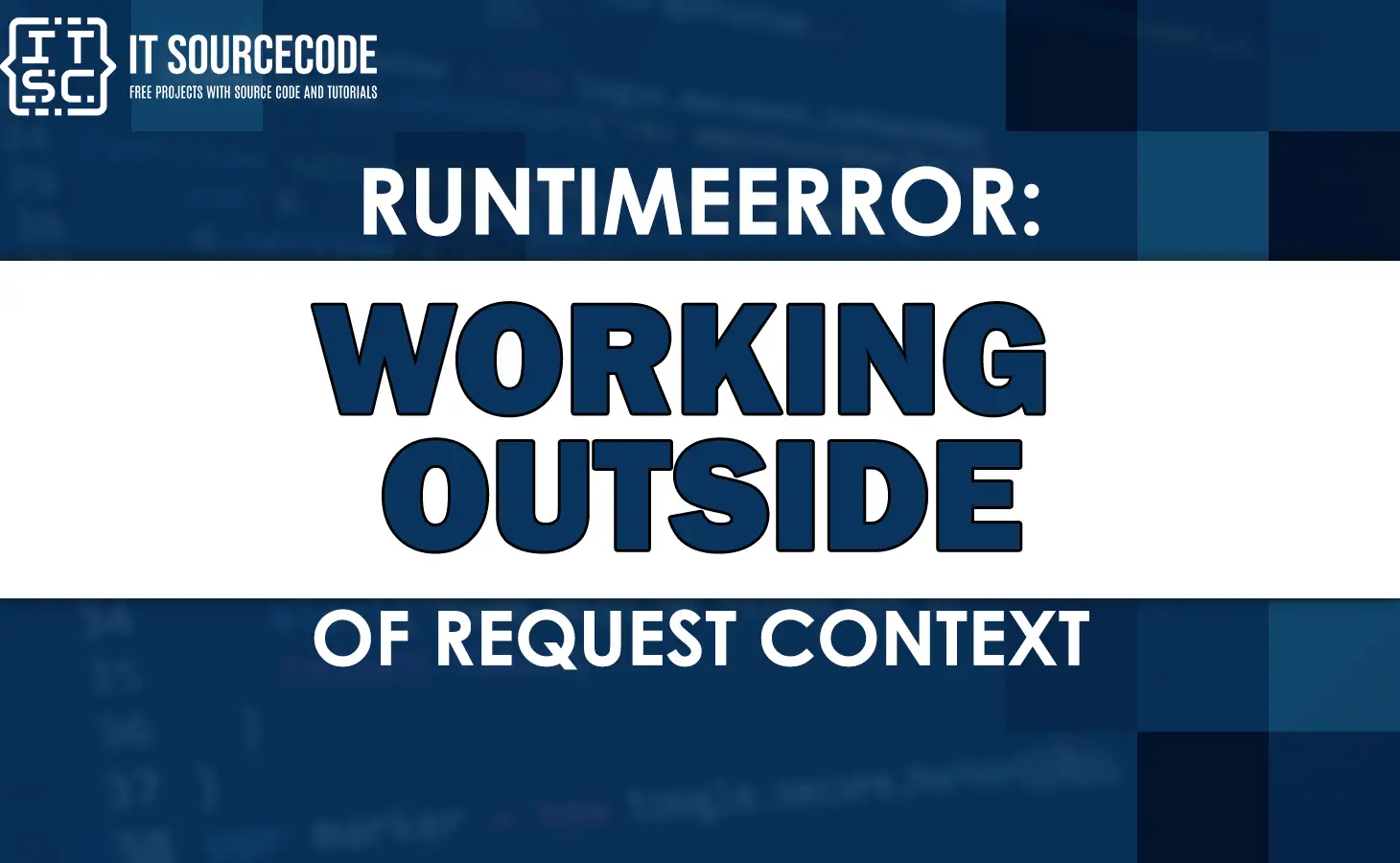Are you encountering a Runtimeerror working outside of request context? This error message can be stressful, specifically if you are in the middle of a project.
Fortunately, there are solutions to this problem. In this article, we’ll discuss what causes this error message, and how to fix it.
Also, we will provide some answers to frequently asked questions about this error message.
What is a Runtimeerror: working outside of request context mean?
A Runtimeerror: working outside of request context. means you are attempting to access a certain Flask or Django functionality outside of the context of a request.
What causes of the error?
The flask runtimeerror working outside of request context it will occur for various reasons, including:
- Accessing the current_app variable outside of the request context.
- Using Flask’s global variables outside of the request context.
- Accessing the database outside of the request context.
How to fix the Runtimeerror working outside of request context. error?
Here are some methods to fix the Runtimeerror working outside of request context.:
Method 1: Using Flask’s application context to fix the error
When you need to access Flask’s global variables outside of the request context, you can use Flask’s application context.
The application context is comparable to the request context, but it is used for keeping global variables which are not specific to a request.
To use the application context, you can use the app_context() method:
from flask import current_app, app_context
with app_context():
# Your code hereMethod 2: Use Flask’s g variable
When you need to store information that’s exact to a request but you don’t want to pass it between functions, you can use Flask’s g variable. The g variable is a place to store information that’s only available within the request context.
For example:
from flask import g
@app.route('/')
def index():
g.my_variable = 'Hello, World!'
return 'OK'
@app.route('/other')
def other():
return g.my_variable
In this example, we are using the g variable to store a string, and we’re accessing it from another route.
Method 3: Use Flask’s before_request and teardown_request decorators
If you need to execute certain actions before and after each request, you can use Flask’s before_request and teardown_request decorators. These decorators allow you to run a program before and after each request, respectively.
For example:
from flask import Flask, request
app = Flask(__name__)
@app.before_request
def before_request():
# This code will run before every request
print("Before request")
# You can perform any actions or setup required for the request here
@app.teardown_request
def teardown_request(exception):
# This code will run after every request
print("Teardown request")
# You can perform any cleanup or teardown actions here
@app.route('/')
def index():
# This is a sample route that will be called on every request
return 'Hello World'
if __name__ == '__main__':
app.run()
In this example, we are using the context_processor decorator to pass a variable called ‘my_variable’ to all our templates.
Method 4: Move your code into a Flask blueprint
Another method to solve this error is to move it into a Flask blueprint. A blueprint is a way to organize your Flask application into reusable components.
Here’s an example:
from flask import Blueprint, current_app
bp = Blueprint('my_blueprint', __name__)
@bp.route('/')
def index():
app = current_app._get_current_object()
# Your code here
In this example, we are creating a blueprint called ‘my_blueprint’, and we’re using the current_app variable within a route.
Additional Resources
Here are some helpful articles that you will be able to understand more about runtimerror:
Conclusion
A Runtimeerror: working outside of request context will oppose the error message to deal with, but there are various solutions to this problem.
By using Flask’s application context, g variable, before_request and teardown_request decorators, context_processor decorator, and blueprints, you can avoid this error message and create more dynamic and organized Flask applications.
FAQs
Flask’s g variable is a place to store information that’s only available within the request context.
A Flask application context is used for storing global variables that are not specific to a request, while a request context is used for storing information about the current request.
Flask’s before_request decorator allows you to run program before each request.
Flask’s teardown_request decorator allows you to run program after each request.

